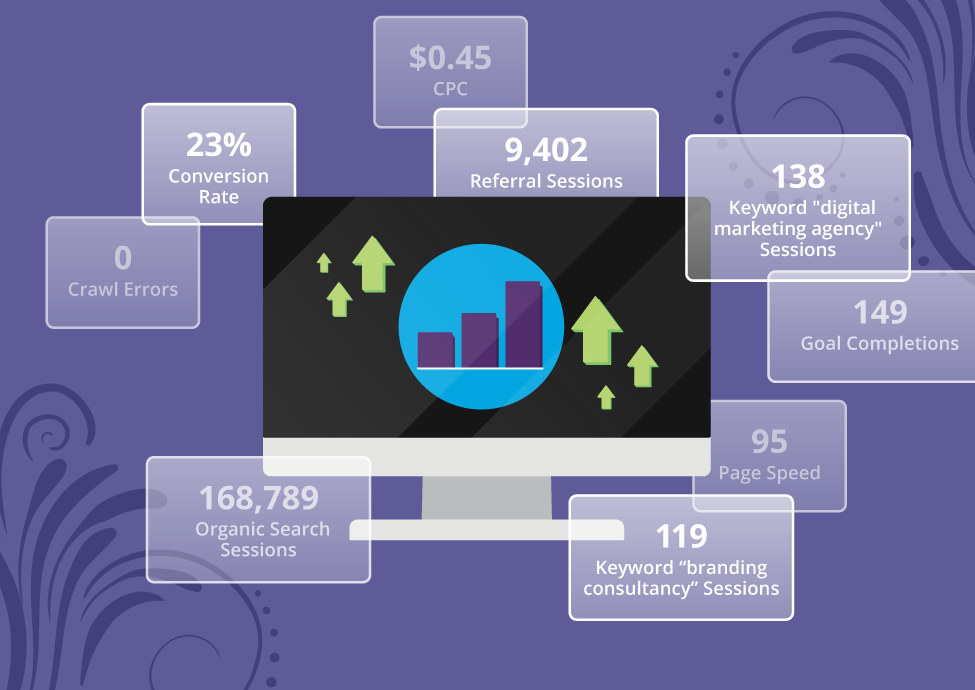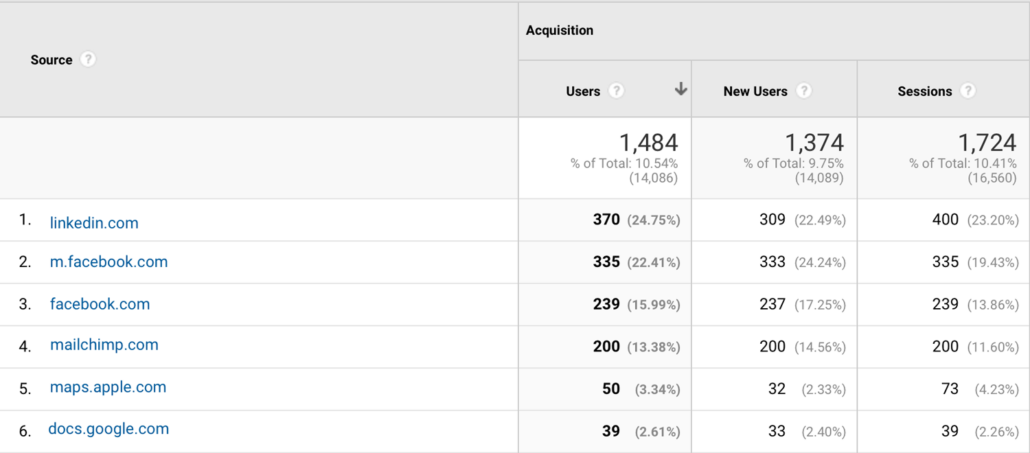7 SEO Metrics that are Critical in Content Marketing

Your content marketing strategy includes writing and designing extraordinary content that generates leads and drives sales. But making sure people find that content requires tracking these 7 SEO metrics.
Businesses looking for a quick fix to their marketing strategy are missing the value of building long-term engagement and online visibility. Managing a marketing program takes time and involves an ongoing commitment to both on- and off-page activities. With many channels to monitor, it takes planning and expertise to measure the success of your content marketing strategy. Here’s an overview of the top seven SEO metrics you should be tracking.
1. Organic search traffic
The main objective of any SEO strategy is to maximize organic traffic—visitors who find your site without paid advertising. This metric is the best measure of how well your site is optimized for search engine results pages and whether your brand visibility is increasing.
2. Search keyword rankings
When buyers look for a solution to their problem or want to compare products offered by various brands, they enter keywords in the search bar. If your content has an effective marketing strategy, your pages will appear in the search results. Comparing your keyword rank with search volumes tells you whether you’re targeting the right terms. If you post high-quality content to attract backlinks, your keyword rank should also increase over time.
3. Referral traffic
This metric shows you how people find your website. Tracking referral paths provides valuable insight into the influencers, social sites, videos and articles that direct the most traffic to your site.

4. Visitor behaviour
How visitors interact with your website will inform your website development and lead generation strategy, driving engagement and increasing conversions. Monitoring the average time people spend on a page tells you whether you’re nailing user intent and user experience. Similarly, factors such as the number of pages people visit, the bounce rate or frequency and recency rates show how well your site structure and design work for your audience.
5. Crawl errors
Crawl errors indicate broken links and other problems with the function of your website that, if left unchecked, could negatively affect user engagement, perception of brand quality and, eventually, search engine ranking.
6. Page speed
Search engines like Google focus on providing the best user experience, and page speed is a consistent ranking factor. Google’s PageSpeed Insights even measures website load times for both desktop and mobile devices. Maximize user engagement and SEO by ensuring your website loads quickly.
7. Lead generation cost
Attributing a dollar value to organic traffic is one of the quickest ways to assess the effectiveness of your content marketing strategy. Comparing the cost (in time and resources) of sales leads—generated by referral and organic search traffic—to the value of leads from paid advertising shows the relative cost of each aspect of your approach.
Use SEO metrics to nail content marketing
Knowing how your visitors interact with your site and where they come from is the first step to improving customer experience and engagement. The second step is ensuring your website and digital content behave the way you intend. When your SEO metrics are used to implement smart changes to your SEO strategy, you should see the cost per lead for organic traffic decrease over time.
No single KPI will tell you how your content marketing efforts are measuring up, but by combining insight from several key SEO metrics, your brand can get more views of your content and increase brand exposure. Of course, it won’t happen overnight, but with the right strategy, you will see long-term traffic growth.
Is your brand ready to nail content marketing? Book a consultation with Mindspin today. We’ll define an SEO strategy to reach your goals.
Tanja Groos, Founder and CEO, Mindspin® Studio Inc.
Tanja Groos is CEO Mindspin with more than 20 years of experience in branding and digital marketing. Her work has been published and awarded. Her leadership has tripled sales within a year, surpassed top industry competitors online, and enhanced brand credibility for her clients.
Follow Tanja on LinkedIn












